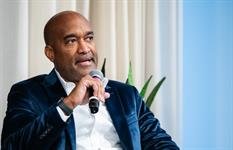
Plus: Instagram rolls out AI safety measures for teens; Nestle CEO lays out clear plan forward after job cuts announcement.
When the Society for Human Resource Management invited Robby Starbuck, a conservative activist known for opposing DEI programs, to speak at its annual conference later this month, many in the HR community saw the move as a betrayal of SHRM’s mission.
Some organizations pulled out of the event, canceled their SHRM memberships or publicly condemned the decision, arguing that platforming someone with an anti-DEI stance undermines core values of inclusion.
Some even called the choice and Starbuck “poison,” per the Wall Street Journal.
Critics also had concerns over Starbuck’s lack of HR, legal or business credentials, so giving him a high-profile platform amounts to legitimizing a voice not grounded in expertise.
SHRM also removed “equity” from its DEI language, switching to D&I, and renamed or rebranded aspects of its conferences. That shift had already raised questions about whether SHRM was backing away from DEI.
Instead of backing down from its decision, SHRM decided to respond to the controversy with a different approach: making the panel discussion longer and inviting the audience to participate in the conversation, no questions off limits and opposing ideas accepted.
“The only way you can effectively build a strategy to support your point of view on diversity is to understand what the other point of view is,” SHRM President Johnny C. Taylor said. “Particularly in the case of someone who has been quite successful at getting major companies to back off of their D&I initiatives, why wouldn’t you want to hear?”
Why it matters: Rather than backpedaling or ignoring the blowback, SHRM is opening the door to a dialogue.
SHRM’s reputation rests on representing HR professionals and advancing workplace inclusion. By inviting the dialogue instead of retreating, the organization is saying it supports open inquiry, not necessarily a single view.
Especially at a time when organizations are often accused of shutting down opposing views, SHRM is inviting critics to the table. That helps the organization appear transparent and responsive, particularly after recent scrutiny. Pulling the invitation now might also draw more criticism from conservative stakeholders.
Still, the move comes with some risk. Critics may see “both sides” framing as watering down DEI principles. If handled poorly, it could deepen mistrust. The HR community will be watching closely to see whether this is a genuine attempt at dialogue or an exercise in damage control.
But SHRM’s willingness to face questions publicly instead of hiding behind statements sends a powerful message that the organization is ready to engage, not deflect.
Editor’s Top Reads:
- Instagram is rolling out new teen safety measures aimed at tightening control over how minors interact with AI chatbots and the content they see on the platform. The update lets parents limit or disable their teens’ one-on-one chats with AI characters, block specific AI personas and view summaries of the topics their kids discuss. Teen accounts will also now default to a PG-13–style setting that filters out mature or risky content, according to The New York Times. The move comes as Meta faces mounting scrutiny from regulators and parents over youth safety, mental health and AI’s role on social platforms. “We hope today’s updates bring parents some peace of mind that their teens can make the most of all the benefits A.I. offers, with the right guardrails and oversight in place,” the company stated in a blog post. This is a smart play. It lets Instagram get ahead of criticism by taking action, showing that the company is listening to concerns and taking tangible steps to protect teens. It also gives Meta something positive and proactive to point to as lawmakers debate stricter rules around AI and child safety. By emphasizing transparency and parental empowerment, Instagram shifts the narrative from “Instagram’s AI is risky for kids” to “Instagram is building safer, more responsible tools.”
- Nestlé’s new CEO, Philipp Navratil, recently made waves by announcing that the company will cut 16,000 jobs globally over the next two years as part of a cost-cutting and restructuring plan. He also raised the company’s savings target from 2.5 billion to 3 billion Swiss francs by 2027, framing the changes as “hard but necessary” steps to adapt to a shifting business climate. “We shied away from being transparent about (tough business decisions) historically,” he said, per Bloomberg. “People can see the world is changing and we need to change with it.” Navratil’s message emphasized strength, transparency and a clear plan, qualities that help in managing the fallout from the workforce reduction announcement. By speaking bluntly about the cuts, laying out clear targets and pledging openness, he’s signaling to employees, investors and the public that Nestlé isn’t hiding behind vague promises. That kind of tone helps boost confidence and show that the company’s leadership is taking responsibility and charting a clear course.
- New U.S. tariffs on furniture and wood products are putting pressure on IKEA’s promise to keep prices low. The company announced this week that U.S. customers may see some price increases in the coming months due to the rising cost of imported goods, WSJ reports. This makes it more difficult for them to stand by their brand promise of low cost, high quality furniture. To deal with the issue, IKEA said it is exploring ways to make more products in the U.S. and buy more materials locally so it can avoid higher costs in the future. Tolga Öncü, retail manager at Ingka, the majority manager of IKEA stores, said, “Our ambition is to continue lowering prices. But of course in the world we live in sometimes … that becomes very difficult or even impossible at some point. We have to adapt and pass on parts of the cost increase to the customers.” While higher prices never make anyone happy, IKEA was upfront about the problem and honest about why they have to make this decision. By explaining that outside forces, not greed, are to blame, IKEA reassured customers that affordability is still its top priority. This helps both protect its reputation and maintain transparency and trust.
Courtney Blackann is a communications reporter. Connect with her on LinkedIn or email her at courtneyb@ragan.com.
The post The Scoop: SHRM invites open dialogue following pushback on anti-DEI speaker appeared first on PR Daily.













